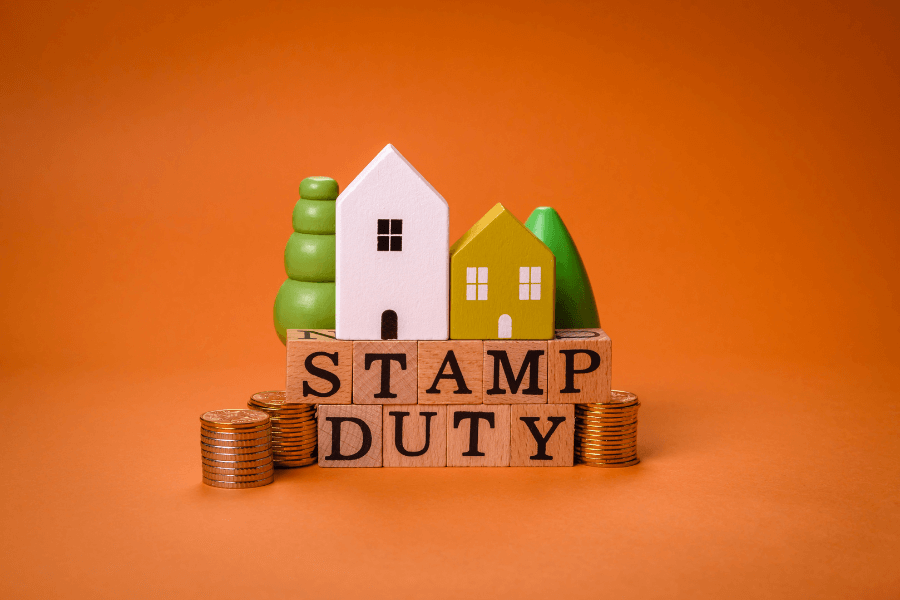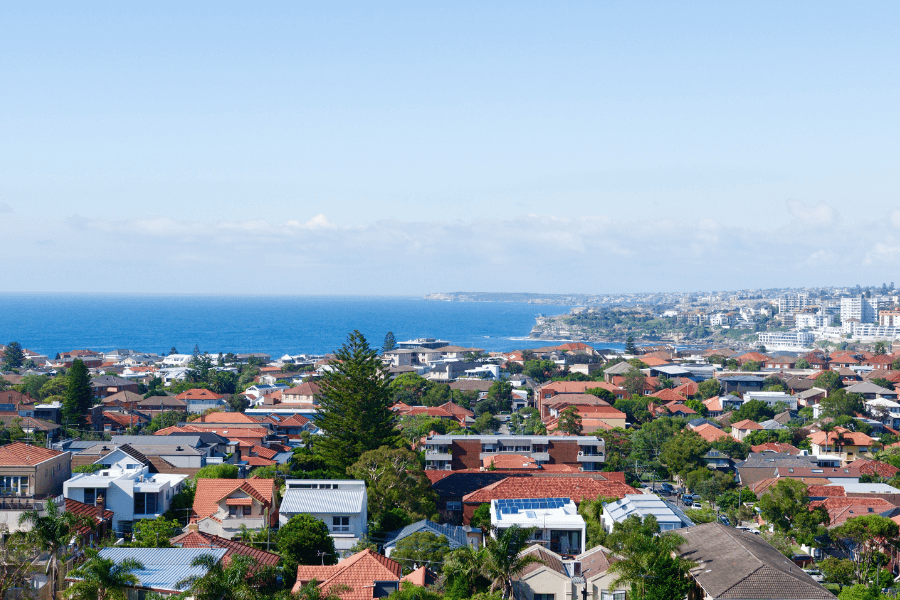Snapping up a home that’s been repossessed by the bank can feel like hunting for buried treasure. There are genuine bargains out there that may be a gem, but you need to know where to dig and how to spot the booby-traps. Below is everything you need to decide if a mortgagee sale fits your goals, how the process works, and the checks that protect you from costly surprises.
Topics in this article:
What is a bank repossessed property?
When a borrower falls seriously behind on mortgage payments and can’t agree to a repayment plan, the lender can apply to the Supreme Court for a mortgagee in possession order. Once approved, the bank takes control of the property and sells it, usually at auction, to recover the debt.
What’s the difference between repossession and foreclosure?
Repossession (known as mortgage repossession) is about paying off the mortgage – the borrower remains on the title while the lender immediately sells the property to recoup the loan amount. Read more about how to negotiate a better mortgage interest rate and pay it off by 35.
Foreclosure is when the lender goes through the legal process of transferring the property title from the borrower to themselves – the lender.
Is it worth it to buy a foreclosed property?
That depends. Foreclosed homes are often sold below market value, as the lender does not need to make a profit, with the goal being to get the remaining money back. This often creates an opportunity for buyers to gain in capital growth more quickly.
It is important, however, to do thorough research if you’re seriously looking into foreclosed properties for sale. It is advised that buyers carry out all the usual due diligence to ensure the property won’t cost all the money potentially saved just in repairs and maintenance necessary to sell at the market rate because you’re buying the home as-is.
What is a distressed property?
A distressed property or distressed sale is a situation where the owner wants or has to sell quickly, before a deadline. Often the owner will sell lower than the property’s worth just to get the transaction done, usually due to financial or personal pressure.
What is a deceased estate for sale?
When a homeowner passes without leaving the property to anyone in their will, the property becomes a ‘deceased estate’. Deceased estates are often something house flippers or keen renovators are on the hunt for, as they are usually homes that have been off the market for decades and are ripe for repairing.
What are the PROS of buying a repossessed property?
- Potentially lower price: Banks want the loan repaid fast, so they’re laser-focused on recovering the debt, not squeezing every dollar from the sale price.
- Transparent paperwork: Contracts usually include recent valuations and court documentation, so you start with solid data.
- Fast settlement: Expect 30 days, not 90. Great if you’re ready to move quickly.
- Room to add value: Many repossessed homes need cosmetic or structural love. If you have trade skills, or a healthy reno budget, equity-building upside can be significant.
Find out 10 reasons to buy an investment property right now.
What are the CONS of buying a repossessed property?
- Sold “as-is”: If termites or rising damp appear after settlement, they’re yours to fix.
- Short campaign windows: Some mortgagee auctions are marketed for as little as three weeks.
- Higher due-diligence costs: You’ll pay for building, pest and strata reports yourself, because the bank won’t negotiate repairs.
- Potential occupancy issues: If a former owner or tenant refuses to leave, you may need legal help to evict.

How does buying a bank owned property work?
What is the process of house repossession?
- Step one: The lender will issue a default notice to the borrower, explaining how the default occurred and how this can be rectified before further action is taken.
- Step two: If the borrower does not attempt to rectify the default as laid out in the default notice, a demand notice will be issued by the lender. In this demand notice, the borrower will be required to outline to the lender how they plan to pay the debt in full. At this point, there are three main options – plan to consolidate debts into one payable loan, sell the property the usual way, or give the bank possession and control of the property to sell on your behalf. The latter is when the home becomes ‘repossessed’.
- Step three: If the borrower does not contact the lender after receiving the demand notice, the lender will likely begin court proceedings in order to obtain possession of the property. The homeowner/lender will have to vacate the property if the court grants the lender possession.
- Step four: Repossession of a property is always the last resort. If no resolution is reached through all of the above steps and the lender is granted possession of the property. From that point forward, the borrower will have no involvement in the property sale process.
- Step five: When the repossessed property is sold, any profits above the loan amount will be paid to the borrower. However, if the property sells below the amount of the loan, the borrower will still be required to come up with whatever amount is still owing.
This is where lenders’ mortgage insurance comes into play. Those with lenders mortgage insurance will have any remaining sum covered rather than having to come up with that remaining sum on their own.
How are repossessed homes sold?
The repossessed home must be vacated by the owner. Next, the lender will put the property up for sale through a real estate agent of their choice.
This all happens much like any other property sale, but the lender acts as the owner with authority over the sale and then communicates with the owner (borrower) once the sale has been transacted.
How long does it take for a bank to repossess?
Anywhere from six months to a year from the first missed payment to sale day, depending on the state and whether the borrower contests the court order.
How does buying an occupied bank-owned property work?
For a buyer, it’s the exact same process as with buying any property. The property may be sold via auction or privately negotiated treaty.
Are bank owned properties negotiable?
Just like any other property, you can negotiate the sale price of a bank-owned or repossessed property. Remember, the bank is specifically looking to recoup the money lost by the defaulted home loan so they are unlikely to go below this number. Learn how to negotiate when buying a house.

Can I get a home loan for a bank auction property?
You can absolutely borrow to buy a repossessed property, but your loan must be unconditionally approved before auction day. Banks will rarely accept finance clauses. Just note that cash buyers often have an edge because they remove settlement uncertainty.
Buying bank-owned property with cash.
Offering cash is the easiest way of buying a bank-repossessed property. This is of course only an option for more established property investors or those with capital – potentially from years on the property ladder.
How to find bank repossessed properties?
Finding which bank has repossessed a property
- Keep your eyes peeled for keywords like “mortgagee”, “repossession” or “deceased estate”
- Follow major auction houses’ in-room calendars, as they often dedicate sessions to mortgagee stock.
- Check sheriff or trustee auction lists published by each state’s Supreme Court.
- Ask local agents known for handling distressed properties; they can flag listings before they appear online.
- When you spot a potential gem, save it to a Homely Collection so you can share the shortlist with your partner, builder or buyer’s agent and keep everyone on the same page.
How to buy a bank-owned property not on the market?
There is less competition involved when you find a bank-owned property before it is offered for sale. To get in first, you need to stay up to date with a range of lenders or professionals that have their finger on the pulse with those lenders.
See PROS and CONS of off-market property sales.
Bank repossessed commercial properties
While the fundamentals of commercial repossessions mirror those of residential properties, key differences do apply. Lenders are often quicker to offload commercial assets, sometimes at a loss, to avoid ongoing holding costs, unlike residential sales where banks must seek the highest price. However, due diligence is more complex, with GST implications, lease agreements, environmental risks and prolonged vacancies to consider. Always stress test advertised yields against worst case scenarios.
Other things to know when buying a bank owned property
Here are the top tips for buying a bank repossessed property:
- Research the neighbourhood: Read street-level insights on Homely’s Where To Live to check traffic, noise and community vibe before you bid.
- Have your finances ready: Get pre-approval first if you will need a loan for the property
- Title checks: Run a fresh title search on settlement day to ensure no new caveats or liens have appeared.
- Insurance: Take out cover as soon as contracts exchange; the vendor’s policy may lapse immediately.
- Stamp duty: Budget for transfer duty, as there are no special concessions for mortgagee sales.
- Final inspection: Schedule it as close to settlement as possible because the property condition can change fast in a vacant home.
What happens if the bank repossesses your house?
You’ll receive default notices, then a possession order if payments aren’t brought up to date. The sheriff gives a final eviction date, and if you leave belongings behind, stores them at your cost before they’re sold or disposed of. If you’re in arrears, speak to your lender early because hardship variations or refinancing may keep you in your home.
Key takeaways
- Mortgagee sales can offer solid discounts, but buyers shoulder most of the risk.
- Have finance approved (or cash ready), and budget for thorough inspections.
- Act fast, as marketing periods are short and competition from investors is fierce.
- Use Homely Alerts, auction calendars and local agent networks to find listings early, then organise your shortlist in Homely Collections.
Keen to start hunting for a bargain? Create a Homely Alert today, save your favourite finds into Homely Collections, and use street-level reviews to make sure a property and its neighbourhood truly fit your plans.





